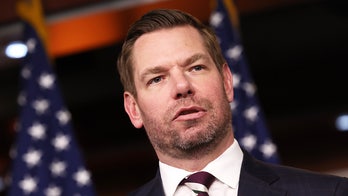Soaring inflation is making it increasingly difficult for young Americans to afford children, leading to a record low birthrate and concerns about the future of the American labor force.
In the face of rampant inflation, rising housing costs, and student debt burdens, young Americans are increasingly reconsidering their plans for parenthood. According to the Department of Agriculture and Bureau of Labor Statistics, raising a child from birth to age 18 now costs an average of $331,933, a significant jump from the $233,610 calculated in 2015. The rapidly escalating expenses for daycare, food, and housing have left many young families questioning their ability to provide for children.
The financial burden of raising a family has become a dominant factor in the decisions of young people, leading to a record low birthrate with the fewest babies born in 2023 since 1979. This trend is driven by a combination of housing affordability concerns and lifestyle preferences.

Inflation and Housing Costs Drive Young Americans to Opt Out of Childbearing
For Gen Z, housing affordability is a primary issue swaying their electoral choices, with 91% considering it a crucial factor in their upcoming votes. The home price to income ratio in America has tripled in the past 45 years, making homeownership an unattainable dream for many young families.
In 1980, the median home price was $50,000, while the median income was $25,000, resulting in a 2 to 1 ratio. Today, home prices have soared to $423,000, while the median income is approximately $65,000, resulting in a 6 to 1 ratio. This disparity has made it extremely challenging for young people to afford a home, let alone start a family.

Inflation and Housing Costs Drive Young Americans to Opt Out of Childbearing
Aside from financial constraints, Gen Z's lack of interest in having children also stems from a desire for personal freedom and the pursuit of other lifestyles. The DINK (Dual Income No Kids) lifestyle has gained popularity on platforms like TikTok, appealing to young people who prioritize their own time and experiences over the responsibilities of parenthood.
Climate change and political instability are also cited as non-financial reasons for Gen Z's reluctance to bring children into the world. The challenges of raising a family in an uncertain and unpredictable future have led many young Americans to reassess their priorities.

Inflation and Housing Costs Drive Young Americans to Opt Out of Childbearing
According to a Bank of America report, over 50% of Gen Z adults believe the cost of living is their biggest financial challenge and barrier to success. This lingering concern impacts their confidence in their ability to provide for another human being.
The rising cost of inflation is not just a matter of gas prices, groceries, and rent payments but also an issue of confidence for younger generations. The high cost of everything is driving them to focus more on their own present well-being than on the future.

Inflation and Housing Costs Drive Young Americans to Opt Out of Childbearing
Addressing inflation and its impact on housing costs is essential for the future of the American economy and society. By providing affordable housing and reducing financial burdens, policymakers can encourage young people to start families and ensure a strong and vibrant future for the nation.











